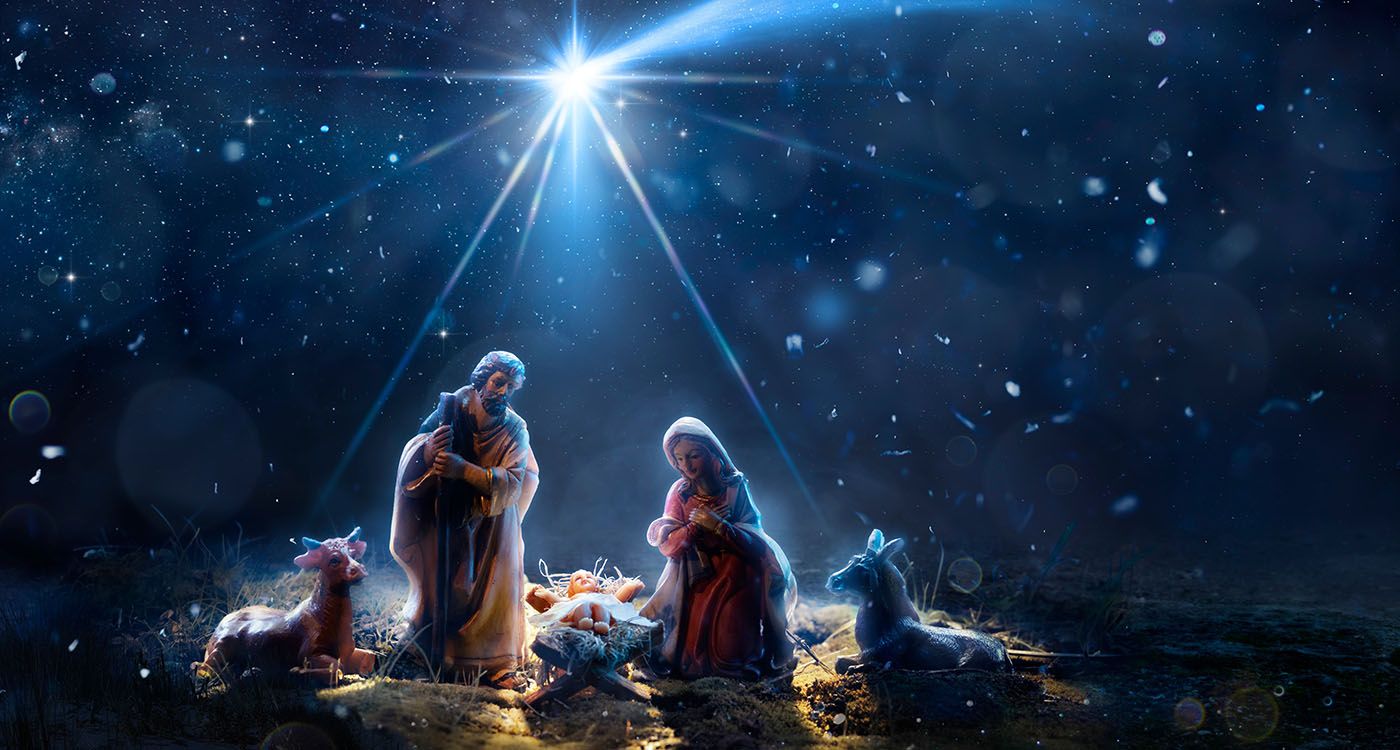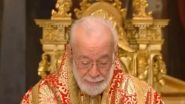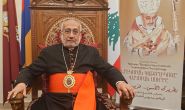
It is from the night that the Savior came, and it is in the night that He was born. He came from the night of time, as He is the eternal “Son of the Father,” according to the doctrine of the Catholic Church, and He was born in the night, as witnessed by the shepherds and as the Scriptures say: “While gentle silence enveloped all things, and night in its swift course was half gone, your all-powerful word leaped from heaven, from the royal throne” (Wisdom 18:14–15). The Christmas liturgy applies this verse to the incarnation of the Word, as explained in a note from the Jerusalem Bible. A traditional Christmas hymn echoes this: “O Holy Night, the stars are brightly shining; it is the night of our dear Savior’s birth.”
He came “to his own,” as the Gospel of John tells us. He chose to be personally found by the human race, and toward this purpose, He prepared a people to receive Him by sending prophets ahead of Him.
“The prophets of Israel belong to the family of the ‘bearers of the Word’ (…). They differ from other divinely inspired figures (…) in the content of their message. Their message is shaped by the fact that the Hebrew prophets speak in the name of a specific God, Yahweh, to a specific people, Israel. The uniqueness of Israelite prophecy lies in the distinct nature of the relationship between Yahweh and Israel as lived through history” (Encyclopaedia Universalis).
However, from the dawn of humanity, as recounted in the Book of Genesis, the Savior was already “grieved in His heart” by the “wickedness” of humankind and even resolved to erase them from the face of the earth.
“Yahweh saw that human wickedness was great on the earth, and that their hearts devised only evil continually. Yahweh regretted having made humans on the earth, and it grieved Him to His heart” (Genesis 6:5–6).
Whether one believes in the reality of the flood or not, the text attests to the profound aversion that humanity’s moral depravity inspired in the Creator and to His active presence in history.
Who would not lament such a state of affairs? And who, placing themselves in God’s position, would not imagine Him saying the same words when witnessing the cruelty unfolding across the globe, not to mention the militarization of space? The arms race is the antithesis of the Creator’s plans for humanity, which are hinted at in the chapter describing the Garden of Eden.
“Then God said, ‘Let us make man in our image (…)’ God saw everything that He had made, and indeed, it was very good” (Genesis 1:26–31). Elsewhere, “Yahweh God planted a garden in Eden, and there He put the man He had formed,” and then, with great wisdom, concluded, “It is not good that the man should be alone,” so He “fashioned a woman” for him, leaving him in awe (Genesis 2:8, 18–22).
But although God assured that He had renounced erasing humanity from the face of the earth once and for all, He had not given up on correcting it—through the words of the prophets and through concrete actions. Speaking to the people of the Old Testament, whom He intended to make “a light to the nations,” He declared through the prophets: “All day long I have held out my hands to a disobedient and rebellious people, who walk in a way that is not good, following their own devices; they only do as they please” (Isaiah 65:2).
Yet, this people built Him a temple, even a magnificent one paneled with cedar wood from Lebanon. But while they built Him a temple, they continually withheld their hearts. That is why He planned their deportation to Babylon. Some may argue that Israel’s prophets retroactively interpreted historical events, such as the capture of Jerusalem by Nebuchadnezzar, projecting divine intent onto them. But the prophets were there—and they remain—guardians of God’s intentions and His judgments on the conduct of a people He chose to reveal Himself to and whom He treats accordingly. They hold the secrets of God’s ways. Upon their return from exile, men after God’s own heart built a second temple, even more beautiful than the first. But it was all in vain. Truly in vain, because six generations later, He came among “His own,” who failed to recognize Him and treated Him “as they pleased,” just as they had treated the man sent before Him to proclaim His coming—the one “whose voice cried out in the wilderness.” John was beheaded. The Savior was crucified.
In the year 70 AD, the second temple was destroyed, just like the first. Not one stone was left upon another, save for a “Wailing Wall,” a witness to this disaster. The Savior, who came from the night and was born in the night, had “grieved in His heart” that His own did not recognize Him and had wept in advance for this destruction.
“As Jesus approached Jerusalem and saw the city, He wept over it and said: ‘If you, even you, had only recognized on this day the things that bring peace! But now they are hidden from your eyes’” (Luke 19:41–42).
The age of the earth is counted in billions of years, and the expanse of the universe is nearly unfathomable. By coming into the world, being born of Mary—prefigured by the Ark—the Savior breached the “Wall of Time,” as one breaks the sound barrier, to be present among His creation. He offers us the opportunity to embark on the Ark, not toward other planets—which would be absurd since we would carry our “wickedness” in our luggage—but toward an inner kingdom where wickedness would be banished forever.
Let us, then, allow the Savior, who came from the night of time, to save us from time and mortality; to help us break through the Wall of Time, against which we continue to crash.



Comments